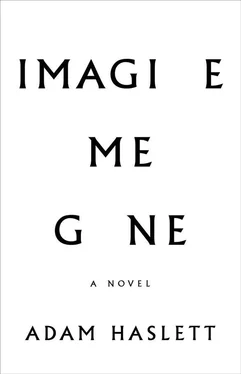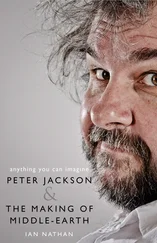The oddity of it all — kids from the Midlands, not the old Confederacy, the uncanny exactitude of their descriptions — would have been memorable enough. But what lodged in me was an observation that the author himself made little of. Toward the opening of the paper, as he was describing the boys’ working-class social milieu, he mentioned in passing that each went regularly to clubs and that all were avid music fans. Alas, he didn’t get their playlists. But given where and when they’d grown up, it wasn’t hard to guess what they’d been hearing on the dance floor — and it wasn’t white punk. It was house and early techno, with some Kraftwerk and New Order thrown in. Of course, there were thousands of kids listening to the same stuff at the same time whose sleep went untroubled by the Middle Passage. And yet it turned out that what these kids had in common wasn’t great-grandmothers from West Indian plantations but black American dance tracks. No one doubted that the agony of slavery haunted generations of spirituals and gospel. Why not the latest twelve-inch? These boys weren’t listening to Mahalia Jackson sing about how she got over, but somewhere in the cut the same ghosts were being shaken loose. There was no empirical conclusion to draw from any of this, as if you could measure the pain in music. But spending my days reading the history of lynchings and race riots, and then playing my records at the station, I kept returning to the image of these boys dancing and dreaming through some dark repetition bigger than any of us.
I suppose, then, you could say that our little reading group was a success all around. Caleigh and Myra got to spend lots of time together, and began hooking up that spring. And I got the assignment that weighs on me still — my real work — to get down in words what doesn’t live in words. To track ghosts by ear.
Have you ever taken any of the following medications? If so, when, for how long, and what was your response?
Luvox
The trouble being that, after that one blessed year, the Klonopin stopped working. Not overnight, but gradually. I didn’t wake up convinced I was dying, just less unafraid than I’d been in the halcyon days. Morning by morning. Until I didn’t wait anymore until after breakfast to take the pill, but swallowed it as soon as I woke, hoping an empty stomach would let more of the drug into my system. That Caleigh had stopped sleeping with me and started having sex with Myra is what you could call a contributing environmental factor to my increased anxiety. But Dr. Gregory saw no problem — nor, for shit sure, did I — in simply increasing my dose. I’d responded to it once, why not again? And indeed, it did the trick. The second cut wasn’t the deepest, but there was relief in it all the same. I was able to see Caleigh almost every day without crying. And able to let her talk me through the losing of her, just as she had talked me through the loving of her in the first place. With enormous patience, she listened to me describe every facet of the pain she was causing me. How I lay in bed thinking of her with Myra, bitten by envy and loneliness; or about the hours spent listening to the records we’d listened to together, knowing I’d see her that same evening but not be allowed to kiss her. She would hug me, as she had before, telling me it was going to be okay, that she was the unlucky one for leaving me, even if she had to. And she’d assure me again and again that I wasn’t as pathetic as I felt, carrying on like I did, needing her to be the one to help me through it, and even help me accept her help, against the taunting voice that told me to show some “self-respect” and masculine amour propre when all I wanted was to be in the same room with her no matter what the conditions.
Through it all she kept calling me Flipper, and I called her Cee, and we even added new variations — Flipster, Flimmy, the Flimster, Ceedling, Ceester, Ceemer. It was this more than anything that made me realize with relief that she didn’t want to depart our cocoon of affection and commiseration any more than I did, regardless of who was sleeping with whom. It was as if we were becoming childhood best friends, siblings, and an old married couple simultaneously. If she took a trip home or away with Myra, I’d speak to her each day on the phone. We talked as we had from the start about what we were reading and listening to. After a few months, I could even tolerate hearing her speak about Myra, now and then offering her advice on how she could overcome her skittishness about being with another woman. I knew then we would never lose each other, no matter whom either of us became involved with. Our private world was too necessary to both of us to be replaced wholesale with another. I wanted to live with her. I didn’t mind if Myra lived with us too. I could be their roommate. It took Caleigh a while to convince me this would be a bad idea. That we could still talk every day, and that it would be easier for me to meet a romantic partner if I wasn’t always with the two of them. So they found an apartment in Allston together, and I moved in with Alec’s old high school friend Ben.
Which is when this second reprieve of Klonopin came to an end, only faster this time. Celia and Alec have since come to form a dim view of Dr. Gregory, seeing him as little more than a guilt-ridden pill pusher who sedated me to fend off his fear of losing another patient, rather than tackling the issues at hand. But frankly I still consider him a humanitarian. The increased doses are what I asked of him, and what I needed. When a physician ups a diabetic’s insulin there’s no question of indulgence or rectitude, just a condition and a drug it would be malpractice not to give. Which is hardly to say I have no regrets. I regret that the reprieves kept getting shorter.
Paxil
And it is not as if, in the years following that first blush of benzos, Dr. Gregory didn’t try anything new. He would sit in his Eames chair, all mild-mannered and bald, in pleated chinos and a V-neck, asking how I had been, nodding gravely as I answered, and every few months, along with the increase in Klonopin, he’d suggest a new drug we might add to the mix to help dampen the growing general fear.
Serzone
I’d taken to writing music reviews, not for the abysmal pay, but to bring to light the overlooked wonders issued from labels run out of bedrooms from Oakland to Eindhoven, kids sampling their uncles’ Run-D.M.C. records into an old-school hip-hop revival, or those unemployed Belgian pranksters turning out tracks hard enough to keep a warehouse of teens dancing till Sunday noon. I never went in for rave culture myself. I was usually in bed by ten. But before it collapsed under the weight of its own promotional shtick and became an ecstasy theme park for weekend punters, it spawned a number of ambient house masterworks that I listen to to this day.
Other than that, I worked in record shops. Not at the chains, which I couldn’t stomach, but various independents. I lasted about a year at a place down on Newbury before selling Nirvana albums to Armani-clad foreign students drove me to a storefront in East Boston frequented mostly by local DJs. I got paid even less, but at least the company was tolerable. My student loans had long since come due but I didn’t have the money to make the payments so I shoved the envelopes in a drawer to be opened at some point down the line when I’d gotten things sorted.
As long as I was in the store itself, talking to other people about music I believed in, ordering it from distributors or listening to it on headsets, my shakiness was kept mostly at bay. My distracted energy got absorbed into the pace of the tracks themselves or driven into the necessity to convert others to their power. In Walter Benjamin, there is the concept of the vanishing mediator, the person or idea that travels between cultures, pollinating one with the other, before disappearing from view, the way black musicians carried blues and rock into recording studios and then vanished from sight and accounting, listening to their invention played out by white bands. If I could sell a hip-hop DJ on a reissued Dolly Parton album or place in the hands of some devoted European Industrialist kid from RISD a Pet Shop Boys aria and make him hear the kinship, then my job for the day was done. I’ve never made a piece of music in my life, which is another thing my mother considers a pity, but as long as I was inside it, passing it on into others’ ears, I wasn’t absolutely alone.
Читать дальше












